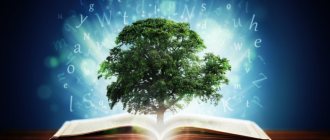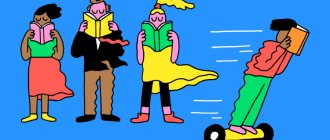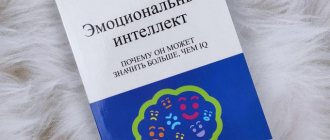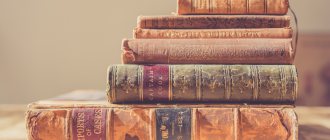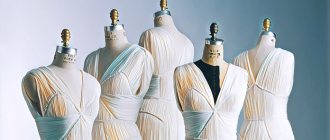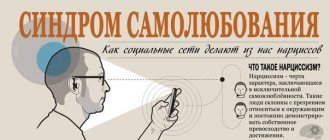A book is a fairy lamp that gives light to a person
What to do if you want to escape from the hustle and bustle of everyday life, be alone with yourself, relax and dream? Open the book - on its pages you will find everything that your soul lacks.
In the darkest days, the book gives a person faith in a bright future.
The publication of literature did not stop even during the Great Patriotic War.
Read the story - adult son
Soldiers at the front, residents of besieged Leningrad, and children deprived of the opportunity to attend school read it.
When there were not enough books, people retold the works they had read to each other and learned poetry together.
A book is a bridge from one mind to another
Literature develops artistic taste, broadens horizons, and influences moral education. We are transported to other eras, get acquainted with the culture of different peoples, and look into the hearts of people.
But to achieve all this, you need to read carefully, paying attention to every detail. Sometimes the author uses seemingly insignificant details to convey deep meanings, so be careful.
Reading Books unites the souls of people
This is interesting: Is it possible to change life for the better?
Imagine: the work you liked so much was read by thousands of people around the world. And how many more will it fall into the hands of! And all these people made the same journey as you:
- visited Narnia;
-walked along the corridors of the ancient castle;
-we watched with fear the sailors who bravely fought against the elements...
If you have ever discussed a book you read with like-minded people, then remember this amazing feeling of community of souls.
Favorite works of stars
No time to read?
Even celebrities, whose day is literally scheduled by the minute, find time to be alone with a book. If you don’t know which work to start diving into the world of literature with, listen to the recommendations of the stars:
Antonio Banderas – Miguel Cervantes, “Don Quixote” Bill Gates – Jerome David Salinger “The Catcher in the Rye” Johnny Depp – Jack Kerouac “On the Road” Mel Gibson – Ray Bradbury “Fahrenheit 451” Angelina Jolie – Bram Stoker “Dracula” Stephen King – William Golding “Lord of the Flies” George Clooney – Leo Tolstoy “War and Peace”
“Books are incredible magic that you can carry with you” - Stephen King.
Without reading books there is no real education
“Without reading there is no real education, no, and there can be no taste, no words, no multifaceted breadth of understanding; Goethe and Shakespeare are equal to a whole university. By reading a person survives centuries.” Alexander Herzen
Learning begins with a bedtime story
Books, like a wise mentor, have accompanied us since childhood. Even the fairy tales that parents read over the baby’s cradle have deep meaning.
Thanks to them, already at preschool age we have an idea of good and evil. In addition, fairy tales prepare us to understand more serious literature.
Through me
A true writer not only foresees, but also shapes reality.
She burst into the world of modern literature with vivid images, deep meanings and naked feelings. Russian writer - Guzel Shamilevna Yakhina. Since childhood, she was instilled with a love of art, books and culture.
Both grandfathers are closely associated with the word. One taught German at school. The second had an incredible imagination and a special gift for storytelling. He spoiled his beloved granddaughter with fairy tales of his own composition.
An integral part of Guzel Yakhina’s life is reading. Since childhood, she has been in love with books: classical literature, mythology, fairy tales, modern prose, fantasy.
Her range of interests in literature is admirable, and her recommendations do not leave anyone indifferent. Her love for literature burns with a bright flame and has a huge influence on all her work. Since childhood, she not only read, but also wrote in various genres.
Raised in an environment of books, the writer emphasizes the enormous importance of knowledge of history. Guzel emphasizes how important it is to give children a “sense of time”... For their daughter, she and her husband prepared diagrams depicting a time scale. History of the world, country, family.
Sensuality, imagination, precision of meaning speaks of the depth of human development. About the joy of knowledge and the ability to reproduce it sensually, giving humanity the best - your impressions. Thanks to her passion for reading, Guzel was able to develop her talent and realize her main quality - writing . Write, passing on meanings from generation to generation, investing great love for people. Connecting here and now past, present and future.
Books are the most important source of knowledge
Wikipedia states that reading books is a set of practices and procedures for working with written text aimed at extracting information, its perception and understanding.
It sounds difficult, but if you make reading a habit, you will no longer want to return to other methods of acquiring knowledge.
Why is it so important to get most of your information from books?
Reading helps you generate your own ideas . You can break away from the text at any time to think about everything and form your own attitude to what you read. Or you can return to already turned pages in search of new meanings.
There are no advertisements in the margins of the book to distract us from quiet reading. This allows you to concentrate and not miss a single wise thought hidden between the lines. Books appeared much earlier than Internet resources.
From blogs, videos and audio files you will get only the top layer of knowledge. If you want to find out how the area you are interested in developed, or absorb the wisdom of people who lived hundreds of years ago, visit the library.
In the process of reading books, we not only learn a lot of new things, but also expand our vocabulary , learn to analyze, and use metaphors.
You can choose an author you trust and make him your mentor. Personal meetings are not needed for this - the book will connect you across distance and time.
It is important that even if a person reading does not have sufficient knowledge of any topic, he can navigate “on the go” due to his developed thinking abilities.
The Power of the Written Word
The written word— classical literature—expands our consciousness . By reading, we enrich our vocabulary. The larger the volume of words, the more meanings, the more accurately a person can identify the essence of phenomena in the world around and in the inner world. Only through the written word does the development of sensory and conscious forms of life occur.
Filling with feelings, the ability to experience emotions that are formed during reading, are directly proportional to the ability to enjoy life, because it is correctly directed and experienced emotions that make a person happy.
Consciousness is the place where our thoughts originate. We can express them in words. The meaning of all worlds is contained in words.
The word is history, the experience of people who lived before us. By reading books, we absorb the wisdom and knowledge of the past. And by living the lives of book characters, we learn to empathize with other people.
Reading books. Benefits of reading
“Love a book, it makes your life easier, it will help you sort out the colorful and stormy confusion of thoughts, feelings, events, it will teach you to respect people and yourself, it inspires your mind and heart with a feeling of love for the world, for humanity.” M. Gorky
Reading books relieves stress
Research led by neuroscientist David Lewis has proven that even six minutes of reading a book makes a person feel happier. The muscles relax, the heart stops beating faster, the mind becomes clear.
This is interesting: job search - interview
Now you know what to do in difficult situations!
The book expands your vocabulary
Without noticing it, we talk to colleagues and loved ones with the same phrases. How can you avoid turning into Ellochka from the film “The Twelve Chairs”?
Read: Humor in family life or what healthy laughter leads to
It's simple - regularly read books written in lively, rich language. And if you come across an unfamiliar word, don’t be lazy to find out its meaning.
Reading books develops imagination
By thoughtfully reading the book, we live the most important moments in the lives of its characters. Various images flash before your eyes: ladies twirling in a dance with their gentlemen, the streets of ancient cities, beautiful landscapes...
Contrary to stereotypes, fantasy is not useless. It allows you to dream, makes a person kinder, and encourages you to think about the eternal. Over time, the reader develops creativity and the ability to think outside the box.
Reading improves memory and increases intelligence
It is known that what we do not use atrophies as unnecessary. And vice versa: each of us can strengthen not only our muscles, but also our memory, mind, and concentration skills.
This is interesting: how to increase your self-esteem? 8 practical tips
To do this, it is not at all necessary to read scientific literature. The main thing is not to forget to follow the storyline and key ideas that the author wants to convey to the reader.
Reading books generates analytical skills
Surely you, at least once, tried to solve the riddle of the novel before it ended. In order to compare all the details and get to the point, you used analytical and critical thinking.
Analysis skills are trained when you evaluate a novel, form your opinion about it, and discuss the book with friends.
Books help you focus on what matters most
From the very beginning of the working day, we begin to be torn between checking email, business (or not so business) correspondence, communicating with colleagues, and completing the assigned task. This approach leads to decreased productivity and stress.
When reading an interesting book, your entire attention is focused on the thread of the story. Try reading every day, at least for 15-20 minutes, and concentration problems will stop stealing precious hours of your life.
So why don't many people still read?
Reading may seem boring only to those who have never read truly interesting and entertaining literature. There are many of these among both classical and modern works. Instilling the habit of reading is quite simple - you need to do it systematically, devoting at least 10 minutes a day to a book before going to bed. And it is extremely important that it be a paper publication and not an electronic copy, because all the charm of the moment is lost.
Just think: modern people have so much knowledge open to them that they couldn’t even dream of a couple of centuries ago, but we don’t use it. Take the challenge - start reading and developing!
Why do you need to read books? The benefits of self-education
Did you know that the great inventor Konstantin Tsiolkovsky was a self-taught scientist? That the sixteenth President of the United States, Abraham Lincoln, attended school for only one year due to his family's poverty? These and many other people have achieved recognition throughout the world thanks to their hard work and perseverance.
They borrowed books from friends, went to the library - read voraciously and a lot. As a result, their thirst for knowledge did even more for them than a dozen teachers.
Writer Ray Bradbury said: “Instead of university, I graduated from the library.”
Now self-education has become as comfortable as possible: you can do it not only in the reading room, but also on the shore of the lake, on a soft sofa, or in the subway on the way to work.
This is interesting: Gestures and facial expressions. Non-verbal communication
You will manage your own time and will not be torn between suddenly arising matters and attending courses.
Many people have a question: do people who have successfully graduated from school or university need self-education? Of course, don’t even doubt it!
Firstly , information is rapidly becoming outdated.
And secondly, the training program often includes too little of what will be useful to you in real life. This is why successful people study throughout their lives, sparing neither time nor effort to gain knowledge.
But before you start, think about how self-education can help you?
Competitive advantage
No matter where you work, you probably have room to grow. One of the motivating phrases of Harvard students is: “Even now your competitors are reading smart books.” Repeat it to yourself if you want to once again put off self-education “for later.”
“The people who read books will always control the people who watch TV.” Felicia Janlis
Confidence that you can handle anything
People who constantly strive for development see not difficulties, but opportunities to improve their lives. Self-education will give you self-confidence and teach you to look at the world more positively.
Keeping your brain active
Without training, the brain may over time lose the ability to think and solve complex problems. You need self-education no less than physical activity.
How do books improve students' lives?
Books help students in different ways. The student is expected to study on a long-term basis. This means that there is a constant need to learn more about the world around us. At each stage of education, you need to read different types of books. It allows you to expand your intellect and expand your knowledge.
Improving your intelligence allows you to better understand what is happening in the world. It lets you know that the community is expansive and exposes you to a plethora of cultures and lifestyles. When you read history books, you better understand how different circumstances have changed over time.
Autobiographies inform you about influential figures and their achievements, as well as their failures. Books take you to places you may never have thought existed. A healthy mind is a knowledgeable person who is constantly learning and developing. Good books contain useful information within their pages. They give students an accessible way to explore different situations.
Students working part-time can benefit from reading books that will help them learn additional skills and give them a competitive edge in the job market. Depending on your ambitions and aspirations, the inventive book combines theoretical and practical knowledge that can take your career to a higher level.
Student life can be stressful considering how demanding their schedules are on their desire to succeed. If you are weighed down by assignments and tests, a book is a good way to take a break from the rigors of routine. Research shows that reading can reduce your stress levels by 68%.
Books give students effective brain training. They support alertness by stimulating mental abilities and increasing their efficiency. Regular book reading is vital to maintaining your mind and possibly preventing mental disorders.
If you are passionate about reading books, it will improve your personality because you will become more versatile in your approach to life. You will find it easier to start conversations and engage in discussions because of your diverse knowledge when you interact with other students.
Where does personality begin? Become an interesting person
A person's success largely depends on his ability to interest other people. An employee with whom you want to communicate can count on the support of the team.
Also, interesting people easily make business contacts and have no problems finding a life partner.
Reading: Buy the book in the Labyrinth online store
Our personal qualities - habits, value system, communication style and other unique characteristics can be formed throughout our lives. Literature helps us with this.
Be knowledgeable in different areas of knowledge.
If a person talks only about his work, family, hobbies, he can hardly be called an interesting conversationalist. Try to gain diverse knowledge and follow important news.
Choose several areas that you enjoy studying - for example, music, cinema, art. Read thematic blogs, magazines, books and soon you will have something to share during the conversation.
Have your own opinion and don't be shy to express it.
But be careful that the debate does not reach a critical point. Books make us more restrained and tactful, develop empathy - the ability to empathize and understand the feelings of other people.
It is not without reason that they say that shouting and the use of physical force are the lot of those who do not strive for self-development and pick up a book only when necessary.
Treat your interlocutors as equals and know how to listen.
People won't be an open book to you if you constantly interrupt them. To become more patient, read fascinating works, and do not try to find out the ending ahead of time by looking at the last page.
Books are the doors that lead you out of four walls... They teach you, educate you, with them you travel, dream, imagine, live other lives, and multiply yours a thousand times. A. Perez-Reverte
Reading books prolongs life
Can books give us longevity? Scientists at Yale University have answered this question. After 12 years of observation of older people, it became clear that book lovers live longer than non-readers.
And it’s not at all about the standard of living - for the purity of the study, an adjustment was made for education and earnings.
But how exactly does reading books affect longevity?
Increases cerebral circulation
As you turn page after page, millions of new neural connections are created in your brain. The best effect comes from a full study of the book - from quiet reading to text analysis. A change in nervous activity keeps the brain in good shape and prevents the development of dementia and Alzheimer's disease.
Literature teaches us to distinguish the important from the unimportant, the valuable from the trash.
How: if we understand why classics are more valuable and more complex than pop, then we will have a better understanding of life.
A term from literary theory that explains this: text.
Who coined the term: this is another word of general scientific language, which is problematized in a new way in the structural theory of literature, for example by Yuri Lotman in the 1970s.
What does this mean: in literary theory the word “text” is used differently than in linguistics. For linguistics, any meaningful fragment of speech is a text: a text message, a fragmentary phrase, or Joyce's novel Ulysses are all texts.
The situation is different in literary theory: not everything written (and especially not everything said) is recognized as a text. A text is a particularly valuable statement, which, unlike the mass of junk statements, we consider it necessary to preserve, perpetuate, constantly interpret (often in the opposite way), and teach in school. Even a draft of a novel is usually not called a text, although it can also be saved and studied (in order to better understand the real text, that is, the novel).
Of course, not only literary texts are preserved and interpreted - for example, legal ones too. But works of art, according to Lotman, also have a specific quality: they are especially complex in their structure. This is because a literary text must be written in at least two different languages - or, in semiotic terms, it must be encrypted in at least two codes.
The first of these codes is our natural language. To read Crime and Punishment, you need to know Russian (or even better, understand how the language of the mid-19th century differs from the language we speak now). The second code can be, for example, the laws of a literary genre: novel, short story, poem. In the case of Crime and Punishment, these are, as we have already said, the laws of a crime novel and the laws of a philosophical essay, which are in dynamic interaction.
Why is it important to have several codes? Because a text encrypted with one code can be deciphered and then summarized, briefly retold; its meaning can be recorded, but the statement itself can be discarded. Statements that are worth rereading and rethinking contain something more than just an elementary meaning. The ambiguity that we experience in literary texts is due to the fact that several different languages interact in them. Sometimes each language has its own character in the work: this is what Mikhail Bakhtin called “polyphony,” an equal dialogue of languages and ideas in a literary text.
How is this useful in everyday life?
First, by reading literary texts, we learn to distinguish between culturally valuable statements that deserve detailed interpretation and study, and those inauthentic, inferior “texts” that can simply be identified and put aside or even thrown away outright without reading.
Secondly, the idea of a text as a particularly complex statement that combines different languages of culture allows us to understand the complexity of culture itself, where different codes, different discourses coexist, interact, and often conflict with each other, that is, ways of linguistic comprehension of reality: professional discourses , scientific (and from different disciplines and different schools), socio-political (again, belonging to different ideologies) and so on. And a literary text is a concise, compact model of such a cultural structure - from its example we learn to unravel the real multilingualism of the social life in which we live.
